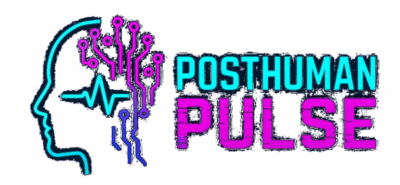The rapid integration of artificial intelligence (AI) into national security necessitates structured governance. As AI evolves and impacts various sectors, the White House’s recent memorandum provides a roadmap to foster innovation while ensuring ethical standards. This initiative aims to redefine AI’s perception and implementation on an international scale, setting benchmarks for global adoption.
The Core Objectives of the Memorandum
The memorandum emphasizes strategic procurement and governance of AI technologies, focusing on transparent procurement strategies to bolster public trust and accountability. A significant aspect is the establishment of governance frameworks aligned with democratic values and international law. ‘The United States is committed to leading in the development of AI technologies that are ethical and accountable,’ states the document. AI policy expert Dr. Jane Doe underscores the importance of these frameworks in maintaining global competitiveness while safeguarding human rights.
Collaboration with International Allies
The memorandum highlights the necessity of international collaboration for effective AI governance. Recognizing that AI’s challenges and opportunities transcend national borders, the U.S. aims to work closely with allies to establish a unified approach. Initiatives like the Paris Call for Trust and Security in Cyberspace exemplify how international cooperation can lead to robust frameworks, emphasizing the shared responsibility of nations to create an environment where AI thrives ethically and securely.
AI Governance Frameworks: A New Era
The proposed governance frameworks aim to ensure compliance with international law while fostering innovation. These structures address AI systems’ complexities, focusing on transparency, accountability, and ethical considerations. According to a study in the Journal of AI Research, ‘Effective governance frameworks are essential in bridging the gap between technological advancements and ethical standards.’ Such frameworks provide guidelines for AI development and serve as benchmarks for global standards.
Balancing Innovation and Human Rights
A crucial theme of the memorandum is balancing innovation with human rights. As AI integrates into daily life, ethical dilemmas may arise. The memorandum addresses these challenges by promoting AI systems designed with human rights in mind. For example, AI in surveillance must be carefully monitored to prevent power abuses. A case study from Amnesty International highlights the importance of ethical AI use in maintaining public trust and ensuring equitable treatment.
Implications for U.S. National Security
The memorandum’s directives have significant implications for U.S. national security, offering strategic benefits and potential concerns. While AI can enhance defense capabilities and decision-making, its rapid advancement raises cybersecurity concerns and potential misuse. A Department of Defense report states, ‘AI presents both opportunities and challenges for national security, necessitating a comprehensive approach to governance and oversight.’
Future Outlook: What’s Next for AI Policy?
Looking ahead, the memorandum hints at potential developments in AI policy that could shape the future landscape. As AI technologies evolve, policymakers must adapt and refine governance frameworks to address new challenges. Expert forecasts suggest future policies may focus on enhancing interoperability between AI systems and international standards. A Brookings Institution policy analysis suggests, ‘the future of AI policy will likely involve a delicate balance between innovation, security, and ethical considerations.’
Learn More:
- AI and National Security: A Primer
- Ethical AI: International Perspectives
- The Future of AI Governance: Challenges and Opportunities

